Removal Procedure
Caution: Refer to Brake Dust Caution in the Preface section.
- Inspect the fluid level in the brake master cylinder reservoir.
- If the brake fluid level is midway between the maximum full point and the minimum allowable level, no brake fluid needs to be removed from the reservoir before proceeding.
- If the brake fluid level is higher than midway between the maximum full point and the minimum allowable level, remove brake fluid to the midway point before proceeding.
- Raise and support the vehicle. Refer to Lifting and Jacking the Vehicle.
- Remove the tire and wheel assembly. Refer to Tire and Wheel Removal and Installation.
- Install a C-clamp against the outer brake pad and the rear of the brake caliper body.
- Slowly tighten the C-clamp until the brake caliper pistons are compressed into the brake caliper bores.
- Using a backup wrench on the brake caliper guide pin, remove the upper brake caliper guide pin bolt (1).
- Pivot the brake caliper (1) forward and support with heavy mechanics wire or equivalent.
- Remove the inner brake pad (1).
- Remove the outer brake pad (2).
- Remove the brake pad springs (1).
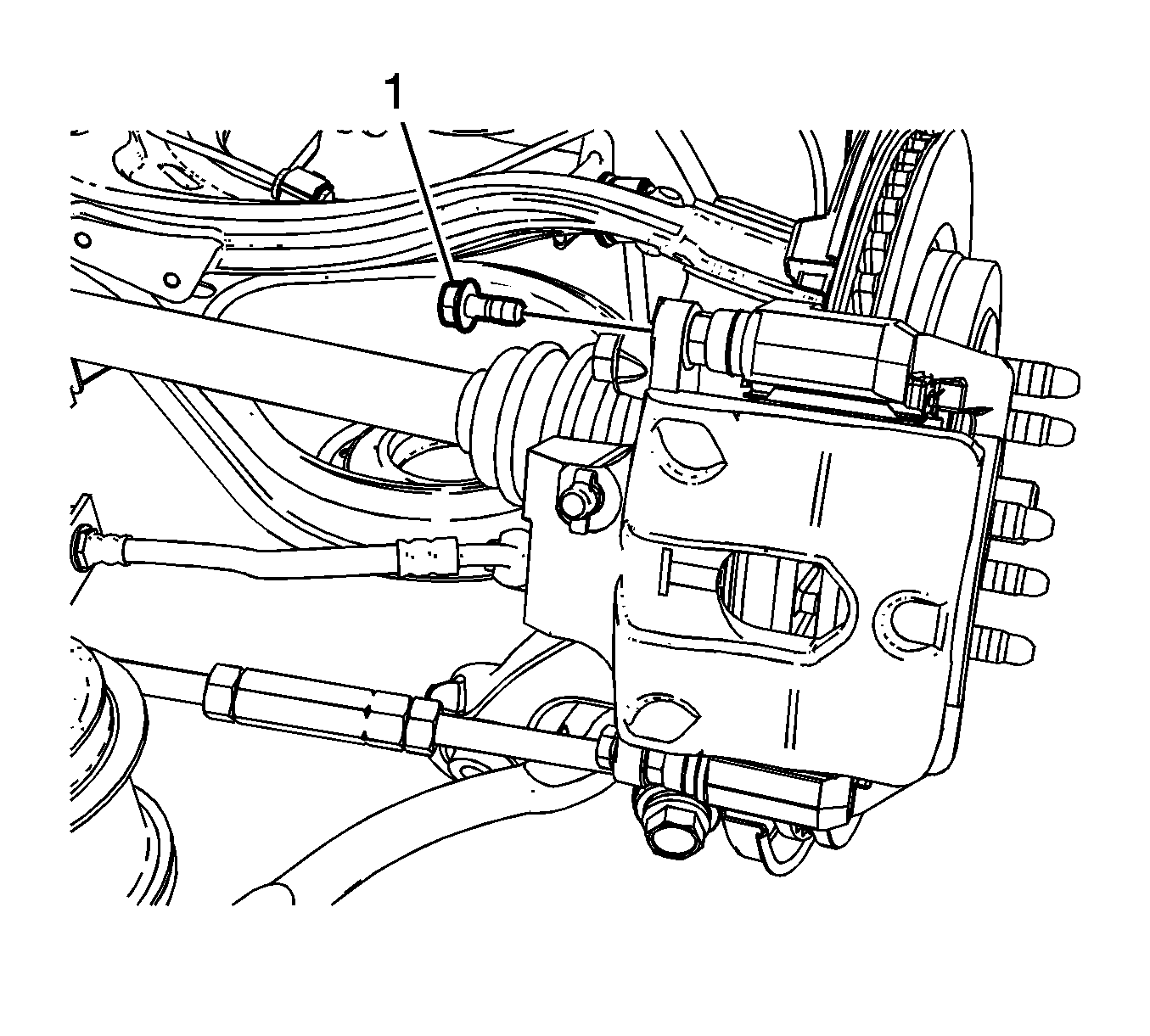
Notice: Support the brake caliper with heavy mechanic wire, or equivalent, whenever it is separated from its mount and the hydraulic flexible brake hose is still connected. Failure to support the caliper in this manner will cause the flexible brake hose to bear the weight of the caliper, which may cause damage to the brake hose and in turn may cause a brake fluid leak.
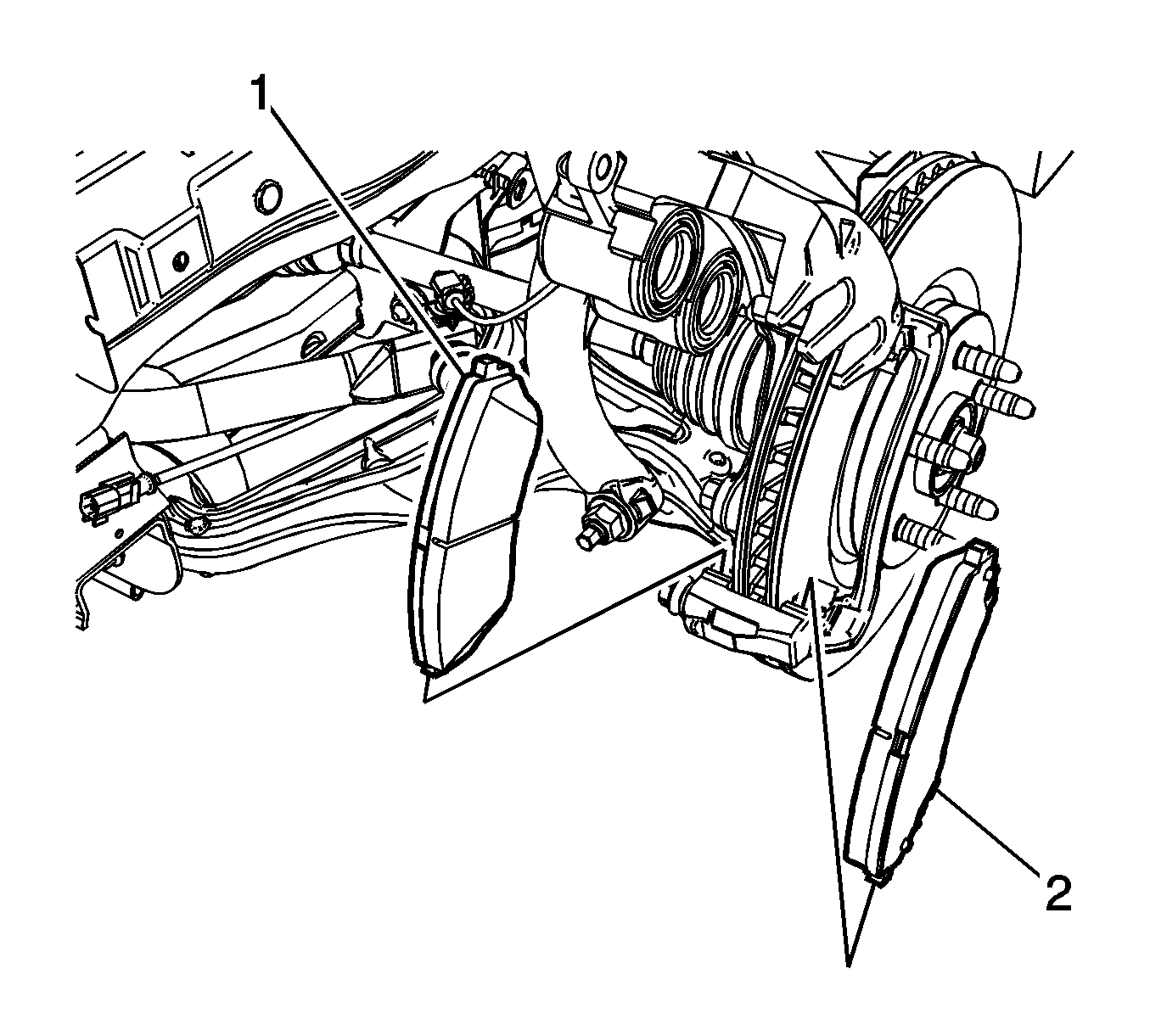
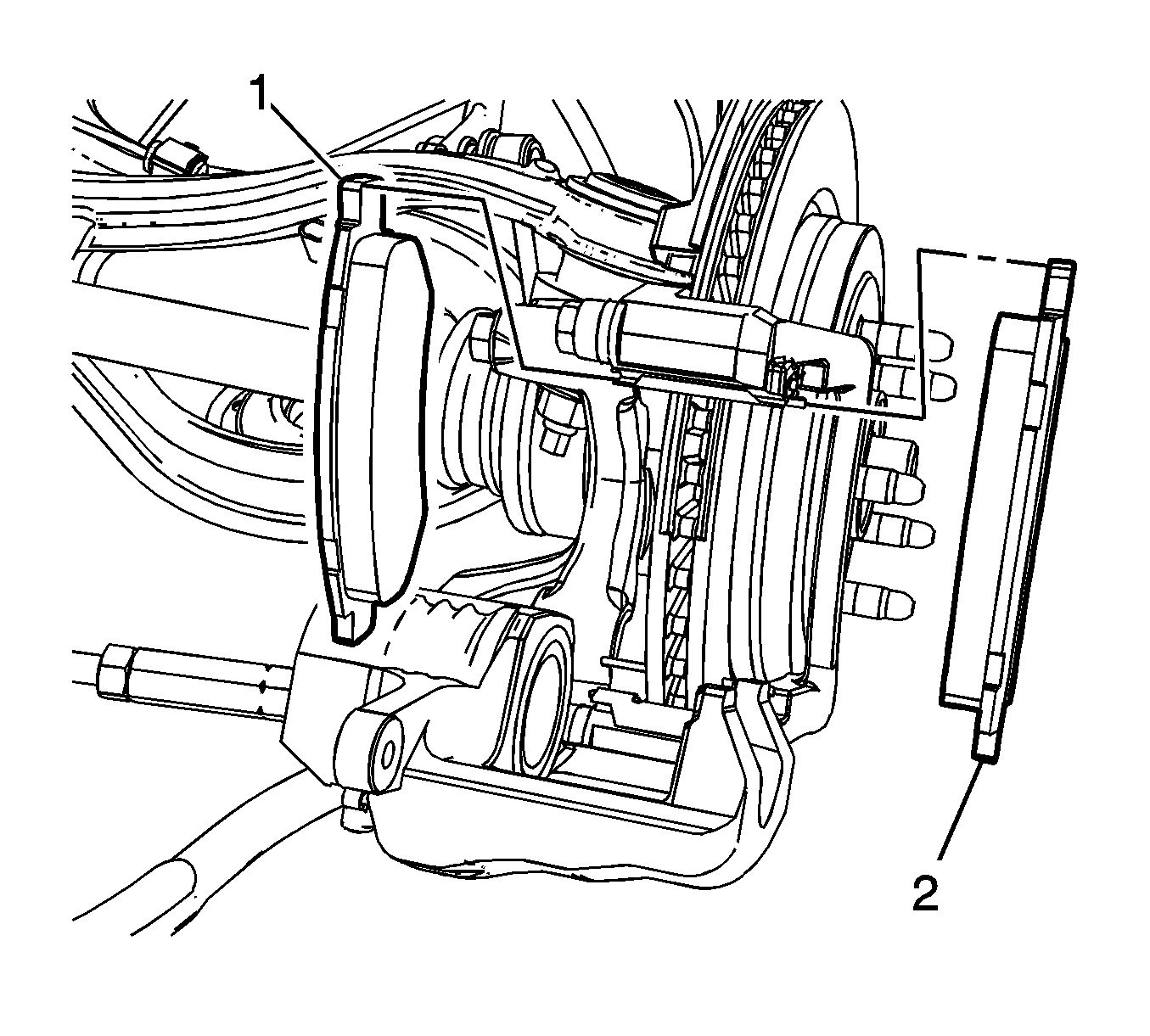
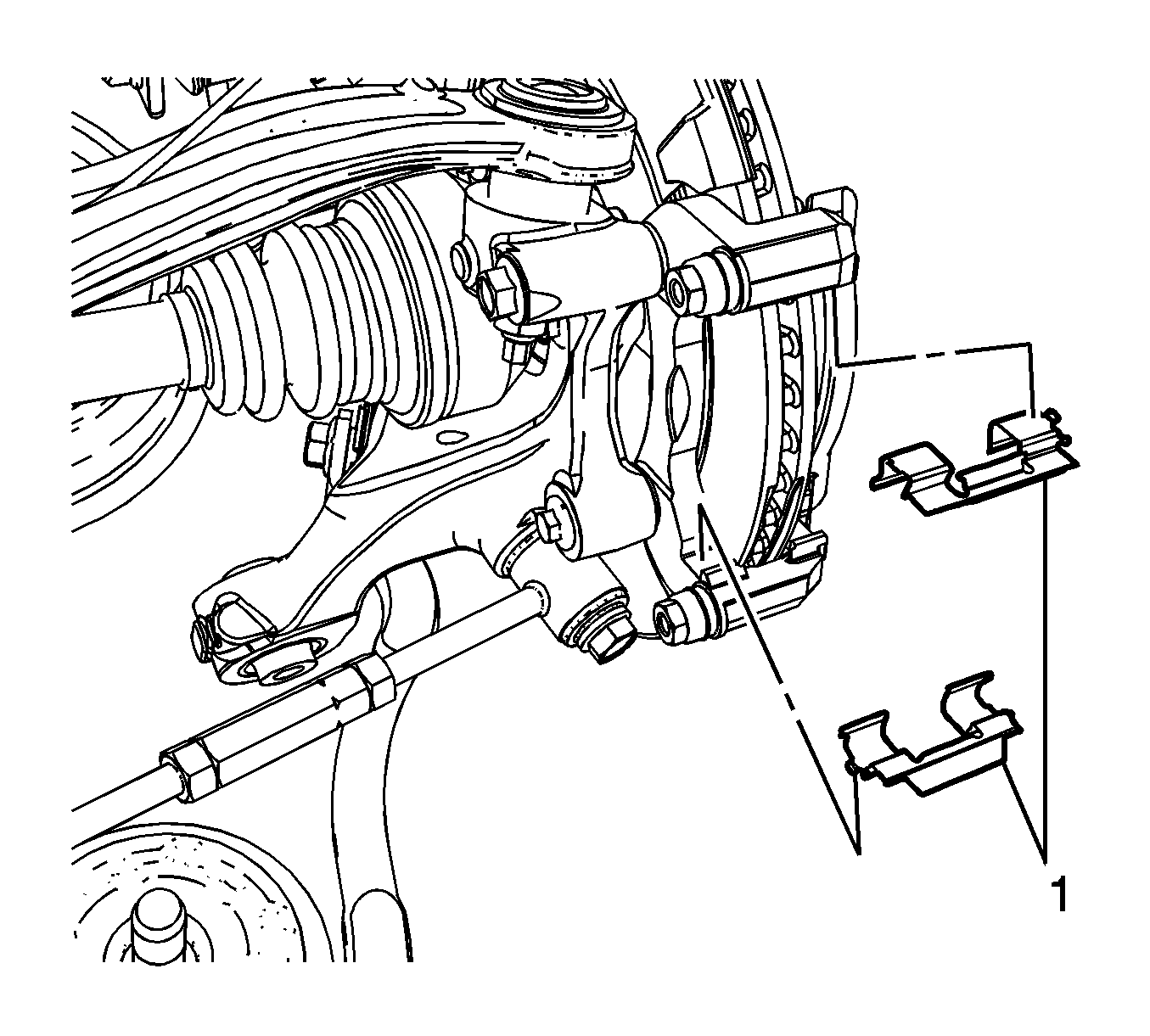
Installation Procedure
- Inspect the brake caliper guide pins, seals and brake pad springs for damage and/or corrosion. Refer to Front Disc Brake Mounting and Hardware Inspection.
- Install the brake pad springs (1).
- Install the inner brake pad (1).
- Install the outer brake pad (2).
- Pivot the brake caliper (1) into position.
- If reusing the caliper pin bolt, prepare the bolt and the guide pin for assembly:
- Apply threadlocker GM P/N 12345493 (Canadian P/N 10953488), or equivalent to 2/3 of the threaded length of the brake caliper guide pin bolt. Ensure there are no gaps in the threadlocker along the length of the filled area of the bolt.
- Allow the threadlocker to cure approximately 10 minutes before installation.
- Using a backup wrench on the brake caliper guide pin, install the brake caliper guide pin bolt (1).
- Install the tire and wheel assembly. Refer to Tire and Wheel Removal and Installation.
- With the engine OFF, gradually apply the brake pedal to approximately 2/3 of its travel distance.
- Slowly release the brake pedal.
- Wait 15 seconds, then repeat steps 11 and 12 until a firm brake pedal apply is obtained. This will properly seat the brake caliper pistons and brake pads.
- Fill the brake master cylinder reservoir to the proper level. Refer to Master Cylinder Reservoir Filling.
- Burnish the pads and rotors. Refer to Brake Pad and Rotor Burnishing.


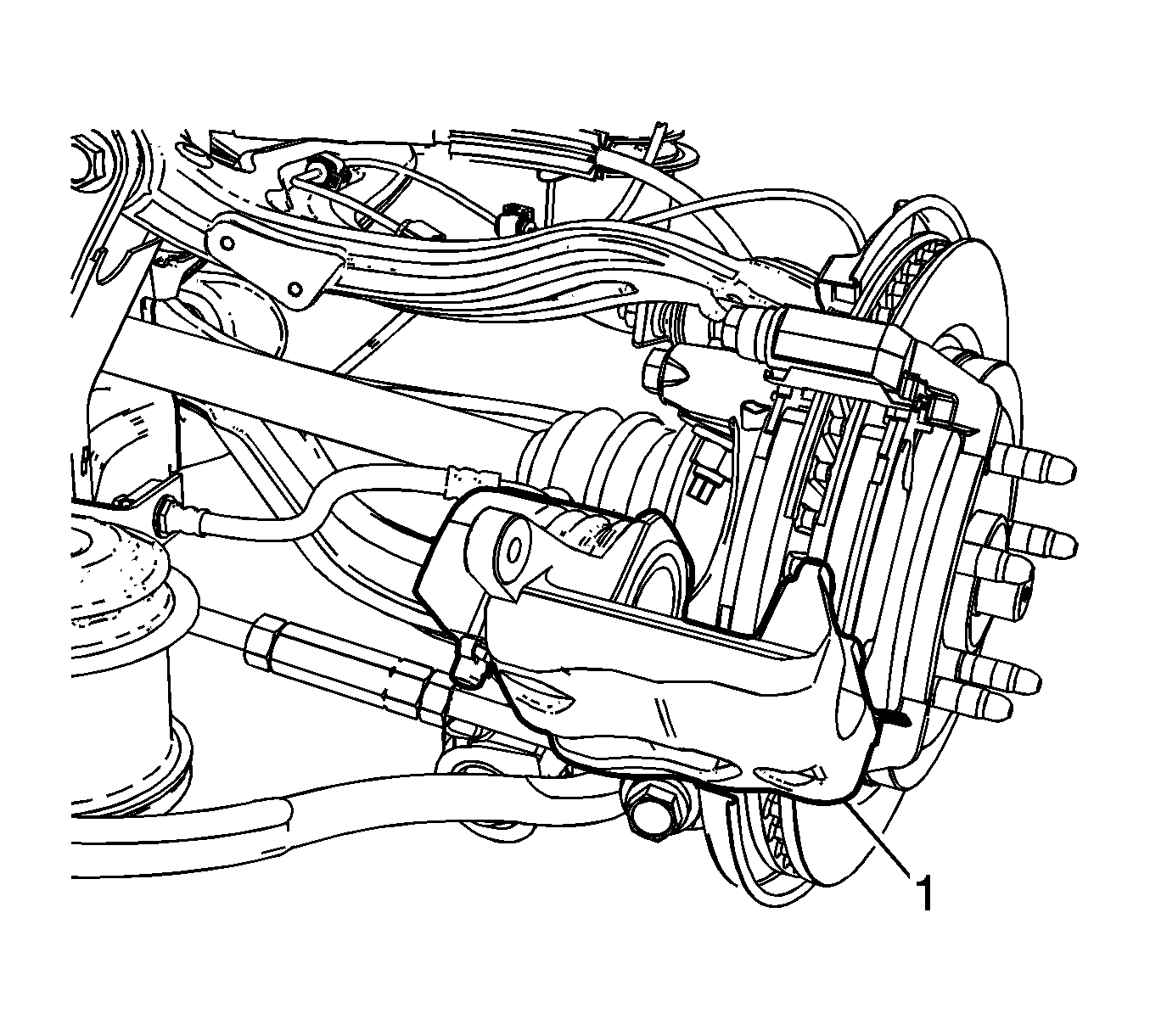
Important: If reusing the brake caliper guide pin bolt, the threads of the brake caliper guide pin bolt and the threads of the guide pin must be free of residue and debris prior to application of threadlocker in order to ensure proper adhesion and fastener retention.
| • | Thoroughly clean the residue from the guide pin bolt threads by using denatured alcohol or equivalent and allow to dry. |
| • | Thoroughly clean the residue from the guide pin threads by using denatured alcohol or equivalent and allow to dry. |
Notice: Refer to Fastener Notice in the Preface section.

Tighten
Tighten the bolt to 27 N·m (20 lb ft).
